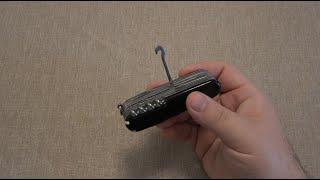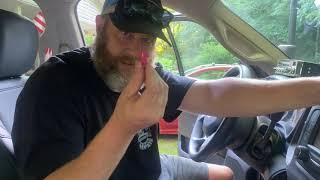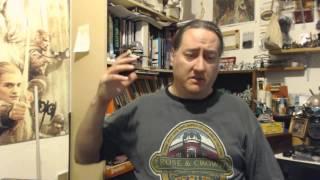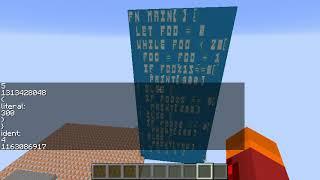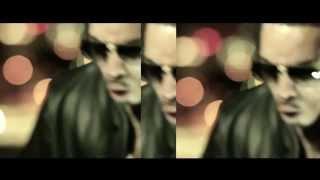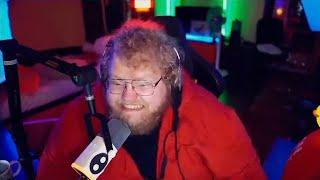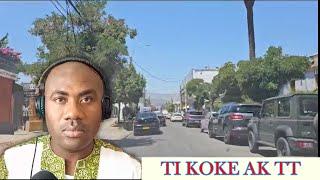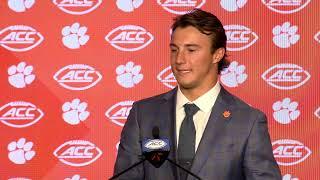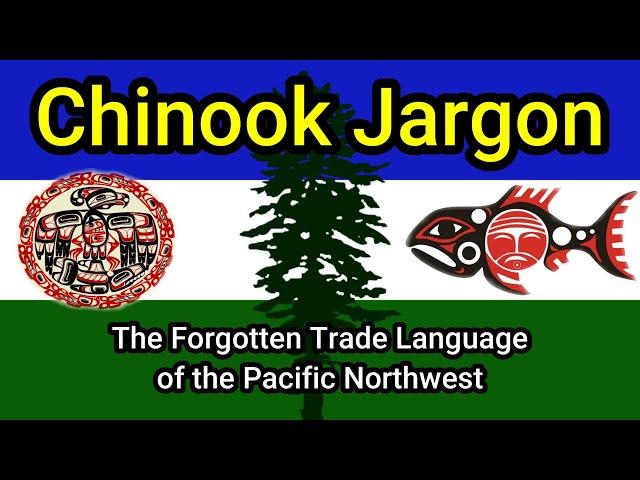
The Forgotten Trade Language of the Pacific Northwest
Комментарии:

Great video. "No grammar," though? Even pidgin languages (lowercase 'p'...many languages called "Pidgin" are technically creoles) have grammar.
Ответить
Chinook. Ch makes sh sound in chinook wawa.
Ответить
Thank you for this awesome video! I'm doing research on pidgins for my linguistics course and this helped me out a lot!
Ответить
There's some recordings of Duane Pasco singing in Chinuk Wawa. "Naika Nanitch Klosh Klootzman Kopa Wayhut" is one lol
Ответить
It might sound unlikely, but as someone who was born in Vancouver, Wa, there is a chance that Ulysses S. Grant did speak at least some Chinook Jargon. If I'm not mistaken, he was a quartermaster of the barracks at Ft. Vancouver before the civil war. You can visit the house he lived in. If he was serving as the quartermaster (and not just placed in the quartermaster's house since that's what was open) then there's a good chance he'dve spoken at least some of the language. He served as quartermaster in the Mexican-American war, before he was stationed at Ft. Vancouver, but I can't find anything that says exactly what he did at Ft. Vancouver in the time I have to spare right this second.
Anecdotally, when I was growing up in the late 80's~early 90's, we called a potluck dinner a "potlatch" which is a chinook jargon word. I didn't know this until very recently!

I live on Vancouver Island. The Chinook language seems to have disappeared here as a spoken language. Two native friends whom I knew in Victoria. BC in the 1970s used to sit on a park bench and practice speaking Chinook with each other because they knew almost no one else who spoke the language and it was fun to talk in a secret language which no one around them could understand. In the 1980s in Port Hardy, BC there was an elderly white guy who spoke Chinook and who was very sad that he could not find anyone else to whom he could teach the language. While, as far as I am aware, the language is functionally dead on Vancouver Island. Chinook words linger on, ghosts of the former language. There are quite a few place names on maps which are obviously Chinook in origin. There are also quite a few Chinook words in the colloquial language spoken by long-time English-speaking residents of BC. I am sure they do not reallze the origins of these words. A few of these words were mentioned in other comments but there are many more.
Ответить
Hello. I am from Washington. You stated no one knows about the boarding schools, but recently they've begun teaching us about them. We learned about the horrors for about a month. I didn't know the last one closed in 1996, but fortunately we were informed of some parts of it, and the generational trauma resulting.
Ответить
Is there a Chinook Wawa translation of The Little Prince book though?
Ответить
What is interesting to understand is that modern British Columbians are the inheritors of Chinook Wawa, (and some in Washington state) growing up on Vancouver Island I heard people around me saying Muk (to eat), salt chuck (ocean), skookum, and so on. Many people speaking it involved in the fur trade didn't want to live in the US, and moved up to the remaining territory, to Victoria on Vancouver island. My grandmother who grew up in Fort Chipewyan said people up their even said Skookum.
Ответить
You forgot the Chinook Jargon fact that always gets the most reaction out of people: It's where the word "potluck" comes from!
Ответить
I've known about Chinook Jargon for most of my life. In this video, the word "chinook" is pronounced in the way of the American Pacific coast, with the "ch" representing "tsh." But anywhere east of the Rockies, in northern British Columbia and the Yukon, it's pronounced "sh", which is probably the original pronunciation. This is because "sh" is the normal pronunciation of "ch" in French, which was the principle European language in most of this area until quite late times. The term Chinook is well known in western Canada, because a "chinook wind" refers to the Föhn winds that frequently blow down from the Rockies. In Alberta, these winds are usually just called "chinooks" and constantly come up in conversation --- always with the French "sh" pronunciation assumed for the "ch" spelling. Many Canadian place names, and some American place names that start with "ch" are like this. For example, the city of Chicago is properly pronounced "Shicago." Europeans almost always get this wrong.
Ответить
Dude, you are so hot. Love your passion for languages
Ответить
We don't say that our languages extinct, we say they're asleep, and we need to reawaken them.
Ответить
Michif is a mix of French and native American
Ответить
I'm British Columbian, and i was wracking my brain as to where i've heard the word Chinook before. I've now realized that it's the name of one of the types of salmon here. I wonder if there's a story behind that.
Ответить
I enjoyed the video. It is well made and covers the subject very well. I just discovered it. One small correction. I am the author of the titled book. My full name is Raymond James Holton, not Robert. I go by the name Jim.
Ответить
Residential schools were not a "sad" part of history. They were quite necessary, and in fact should be brought back. Look at the unbelievably horrific abuse that happens in indigenous communities. Such things are not modern phenomena, as they were well known at the time the residential schools were established. Such horrendous treatment of children was even witnessed as far back as Cortés. It was never going to stop unless somebody made it stop. Thanks to the sacrifice and hard work of my ancestors, those children were given a fair chance in life. They were allowed to be kids. Had they just been left in insular native communities, they would have been subject to unmentionable abuse from early childhood, as well as groomed into being warriors rather than writers and scientists. And as for the mandatory usage of English in those schools, how is that different from any other school in the world right now? To have a functioning classroom, every student and teacher must be communicating in a single language. Imagine if every time a teacher gave a lesson, they then had to repeat it in French and then in German and then in Chinese. It would be criminally inefficient. China is extremely linguistically diverse, and yet in their schools, there is a very strict Mandarin only policy.
Ответить
Would anyone happen to have a reference for _Chinuk Pipa_, or Duployan as used to write Chinook Jargon, Preferably with IPA characters for pronunciation? I'm finding a few sources online, But most of them have honestly very confusing phonetics given for the letters, Especially the vowels.
Ответить
Never forgotten, a few Chinookan elders spoke the language and passed it on. It is alive and well. An interesting aside, I met a Chinook man who was born in the late 1930s, he didn't speak English until he was 9 years old.
Ответить
csónak = boat in magyar
csángó=come and go folks of hungary (ocean go)
csónak csángó change
boat comengo- change

I can think of two Chinook words that might've oozed into American English. The first might be heard at construction sites where one carpenter might yell out "Is that wall plumb?" and the other puts a level on it and replies, "Yeah it's skookum", meaning right or good. The second might be more familiar. When referring to someone who tends to throw their weight around (i.e.; land owners or business owners but more commonly, bureaucrats) one may hear the term "Muckity-muck" or more Chinuk wawa, "Mucky-Muck".
Ответить
i was born and raised in Portland, oregon, and we learn about the chinook a bit in school, but i wish we learned more! this is so fascinating to me about the area i’m from
Ответить
Our class really enjoyed your presentation: hot diggity damn!
Ответить
Excellent video! I grew up in Seattle area, so know some basic words, which my parents used (skookum, hooch, chuck, …). (My family in not native, BTW.) I had not heard the explanation of ‘Tolo’ until a comment below! In 1971 a friend and I hitch-hiked up Vancouver Island. We stayed with a native family in Coal Harbour for a couple nights; a remote area. The husband spoke English, Chinook, and a native language — probably Kwakʼwala. The wife only spoke Chinook and Kwak’wala . They were probably in their 40s or 50s. Fascinating!
Ответить
This is rlly high quality and cool!
Ответить
The Chinook Jargon word for "Hawaiian" (kʰanakʰa) is definitely from Hawaiian. In Hawaiian "kanaka" means "person". So there is at least one Hawaiian word in Chinook Jargon.
Ответить
I'd love to see a video on Michif, my maternal g--great grandma was from a Métis family going back into the late 1500s, she was from Green Bay, Wisconsin when it was still called Baye Verte, and they were Voyageurs for the fur trade. I don't know much a bout that culture and language, she moved with her non-Métis husband to California, but I'd like to learn more about that part of my ancestry, and the language.
Ответить
A couple chinookan languages still exist, one specifically is Kiksht, which is currently being taught once more on the Warm Spring reservation in partnership with the university of oregon. Thanks for bringing attention to our pacific indigenous languages.
Ответить
Too long? I say this was too short I would never have expected some of the facts in this video!
Ответить
Researching this language must have been difficult. Thank you for this video! Keep it up! I'm so glad you brought this language to my attention!
Ответить
Thank you!! I am over the moon with the information you have here. As someone who grew up in Washington I've been interested in the native language(s) and doing my best to research what little has survived the past century and a half. I've been trying to pick up Lushootseed (spoken by Puyallup, Duwamish, and Snohomish tribes) in the meantime, but it can be discouraging with the scarcity of speakers and resources. Another part of the reason it's hard might be because the area is so diverse, so it's hard to find any one language defines a large area...except Chinook Wawa, as I've come to learn. Hearing how common it used to be and how it was spoken by indigenous peoples and settlers alike is extremely encouraging in a landscape overwhelmed with English. I'm also delighted to find out that I did already know some of the words (like skookum) just from growing up here. Thank you again for putting this video together and providing links for further research.
Ответить
Northumbria
Ответить
Very nicely done. Thank you.
Ответить
Dude!! This is amazing! I have only a few native American ancestors in my family. I wish to know so much more about. Sadly there isn't much information out there. My ancestor George Gay married a native woman at fort Vancouver WA. Built the first brick house in Oregon. Very little is written about his wife because all of the text is in English. not translated for her.
Ответить
Excellent info, thanks! I live in the PNW and have always been interested in this language and have some regrets I didn’t learn it.
Ответить
You got some right and some not fully right I'm from Grand Ronde and a language teacher
Ответить
I'm from Washington State and when I was younger I became quite interested in the language.
One of the things I've found interesting is how some words have made it into local English; in the US we have a school dance where the girls ask the boys, in most places it's called a "Sadie Hawkins dance" but in western Washington we call it "Tolo" I never knew why until I learnt more about Chinook Jargon, it's short for "Klootzman tolo" - klootzman means woman, and tolo means to win so it comes from the Chinook Jargon for "women win". Then the is "muck-a-muck" which is some one who's the big boss of something, and "hooch" for alcohol which has even made it beyond the Pacific Northwest.

Thanks for the video I live here WA state. Grew up in LaConner the swinomish speak or used to speak lushootseed as well as the other tribes but I don't if they do any longer.
Oh plz next video you do turn up your microphone volume higher it's very hard to hear well. Thanks.

I just thought that maybe it could be connected with TokiPona ....
Ответить
Gunalchéesh, masi. I'm Tlingit and one of my relatives remembers hearing both Tlingit and Chinook Wawa spoken when he was a kid, in addition to English. I'm slowly reclaiming both.
I am only the 2nd generation in my family not to be stolen away to a Native boarding school.
Just a heads up, we refer to languages as "sleeping" not extinct.
Also, the Confederated Tribes of Grande Ronde use Chinook Wawa as their language and do teach it. There's a fantastic Ted Talk on it by a cousin named Crystal (search "Chinook Wawa Ted", it comes right up).

Okay this is the second of your videos I've seen. Good job! As it turns out I am from Alaska and my grandparents spoke Tlingit as their native language. I remember my grandmother's English was heavily accented. There are some Chinook jargon words in it (like Ginjichwaan---means Englishman, from "King George I") but American is not "Boston" (I don't think there is a specific word for it, only terms that mean European type man or woman). I've also heard that the word for "cat" in Tlingit was adopted from Chinook jargon but can't be sure (it's "dóosh"). That would mean that the trade language was spoken there once upon a time in Lingit aani (southeast Alaska) as a second or third language (along with English and Russian---yes, they were also there, hence all the Russian place names and the Russian Orthodox Church). Thank you for another great video.
Ответить
That "Wawa shorthand" looks like it could be given as much prominence as the Inuktitut and Cree syllabaries, maybe after some modernizing (creating new fonts etc) to facilitate language revival...
Ответить
I am part Chinook from Canada I guess. So this is different. Thank you.
Ответить
Who are the idiots who downvote these videos? This channel is a treasure.
Ответить
It's not wrong to say there are languages with no cases, tenses etc. That's absolutely true.
Ответить
